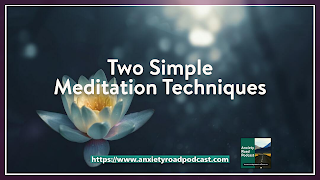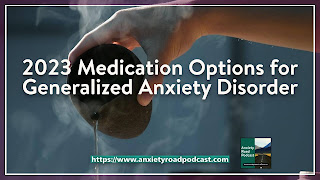Many of us hold our tongues or clench our teeth to protect ourselves from saying what you really want to say. Or feel.
And for most of us, that works and we go about our day. But if you are clenching and grinding your teeth on a daily basis there is going to be a problem.
Sometimes with your jaw. Or wearing away your teeth. Or having headaches or something worse.
In this episode, a look at what jaw clenching and teeth grinding and some of the things you can do to reduce the symptoms. The medical term is called bruxism.
I do want to mention that I did not make any references to medication. That is because there can be non-anxiety related forms of bruxism. There can be structural problems with the jaw or mouth.
If that is the source of the problem, then that is more of a dental treatment issue. I'm looking at jaw clenching and teeth grinding from a stress and anxiety point of view.
If you need support contact the National Suicide Prevention Lifeline at 988 or 1-800-273-8255, the Trevor Project at 1-866-488-7386 or text “START” to 741-741.
Resources Mentioned:
No Time To Panic: How I Curbed My Anxiety and Conquered a Lifetime of Panic Attacks" By Matt Gutman, who is an ABC news national chief correspondent. You can listen to a sample of the book at the
publisher web site.
National Public Radio
1A podcast interviewed Matt Gutman and talked about his experiences having panic attacks on the air. It is a 36-minute conversation.
The Journal of the American Dental Association page on
Bruxism has a
patient PDF that you can download. It explains what it is and what you can do about it.
Sleep Foundation page about
Bruxism. Sleep Foundation is not associated with the non-profit National Sleep Foundation. This company is in the business of selling sleep products. That being said, they do have factual information regarding sleep issues.
Healthline
jaw exercise post with gifs to show you how to do it.
Disclaimer:
Links to other sites are provided for information purposes only and do not constitute endorsements.
Always seek the advice of a qualified health provider with questions you may have regarding a medical or mental health disorder.
This blog and podcast is intended for informational and educational purposes only. Nothing in this program is intended to be a substitute for professional psychological, psychiatric or medical advice, diagnosis, or treatment.










